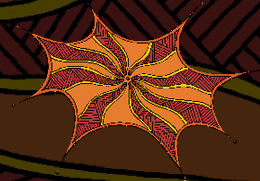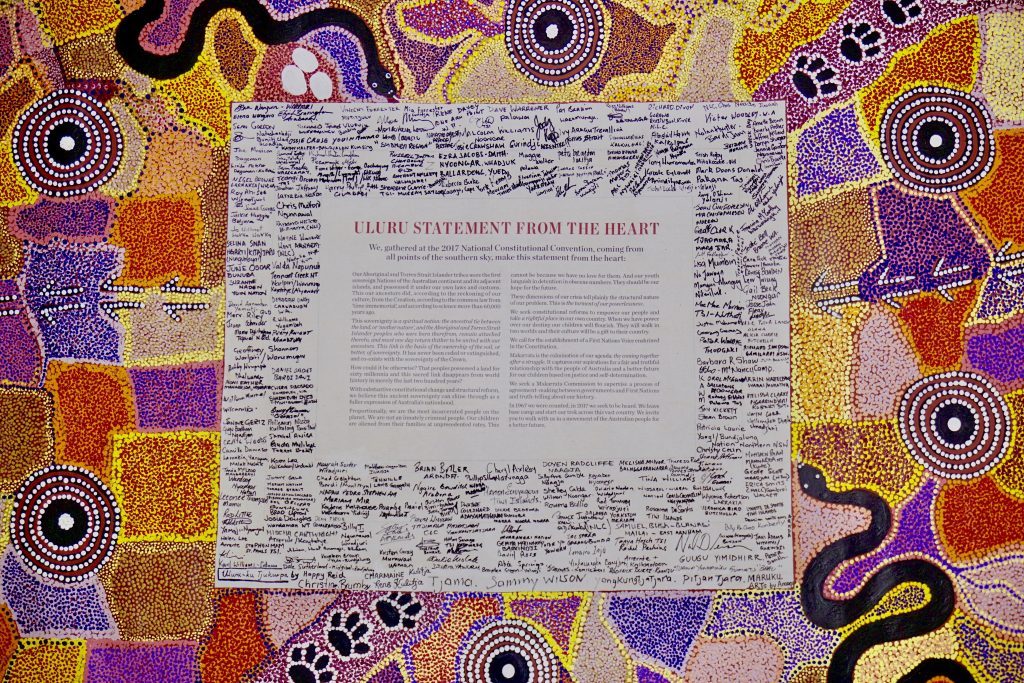Australia's First Peoples
The MAV acknowledges Aboriginal and Torres Strait Islander people as the traditional custodians of the land, and we offer our respects to their Elders past and present.
We encourage Victorian councils to stand alongside local Aboriginal communities to foster unity, knowledge, cultural awareness and respect for the first occupants of our land through their strong community links and local representation.
Current priorities
- Supporting the key principles of the Uluru Statement from the Heart, which are Voice, Treaty and Truth
- Supporting council awareness on the Victorian Treaty process
- Promoting reconciliation between councils and their local Aboriginal communities – see the Maggolee website for an outline of initiatives in every Victorian council. We have also collated examples of Council Reconciliation Action Plans and statements of commitment
- Promoting the Victorian Aboriginal and Local Government Strategy 2021-2026 and the Ministerial Good Practice Guideline for Councils Engaging with Aboriginal Victorians (Word - 858KB)
- Encouraging employment of Aboriginal people in local government. See our web-page for suggestions and useful links.
Closing the Gap
The MAV is a member of the Australian Local Government Association (ALGA), which is proud to be a co-signatory of the National Agreement on Closing the Gap. Key documents include:
- An Implementation Plan setting out the key actions ALGA commits to undertaking in each of the four priority reforms.
- ALGA’s 2023 Closing the Gap Annual Report (PDF - 745KB)
Acknowledging and Celebrating Victoria’s Aboriginal Community
There are many remarkable stories from Aboriginal people from south-eastern Australia – from the ancient traditions of family kinship and connection to land, to the struggles and hardships endured since British settlement of Victoria from the 1820s onwards. Dispossession of Aboriginal Victorians involved relocation to missions and reserves, removal from traditional lands and separation of families. Family break-up through forced removals of Aboriginal children from their families was more prevalent in Victoria through the 19th and 20th centuries than in other parts of Australia.
Throughout these times, many Aboriginal people have shown great leadership and diplomacy and continued working towards reconciliation. The Victorian Government's Aboriginal Honour Roll honours some of these notable people.
Many more stories from south-eastern Australia have been generously shared by people who have had to deal with extraordinary life events – visit the Banjilaka First Peoples Permanent Exhibition to access these. There are also important art and heritage collections from southern Australia on display at the Koorie Heritage Trust.
Councils can take practical steps to acknowledge the unique place of Indigenous people in our local communities.
The Maggolee website provides examples of Aboriginal and local government initiatives in each of Victoria’s 79 councils. Examples of Victorian council engagement plans and strategies have been collated, follow the link below:
Resources
Federal Government:
- General information
- National Indigenous Australians Agency
- Closing the Gap National Agreement
- Supply Nation
Victorian Government:
- Victorian Aboriginal Affairs Framework 2018-2023
- Treaty and Self determination Reform Framework 2019 (PDF - 8.64MB)
- Victorian Aboriginal Heritage Council
- Victorian Aboriginal Business Directory
- Kinaway Business Directory
Victorian Aboriginal community links:
- First Peoples Assembly of Victoria
- Yoorrook Justice Commission
- Victorian Aboriginal Languages Corporation
- Koorie Heritage Trust
Engage with us
For further information, please email: inquiries@mav.asn.au
Wominjeka is the welcome used in the Woiwurrung language of the Wurundjeri people.

Local government and Aboriginal communities working together
The Maggolee website celebrates good practice in Victorian local government Aboriginal engagement.

Victorian Local Government supports the key principles of the Uluru Statement from the Heart
